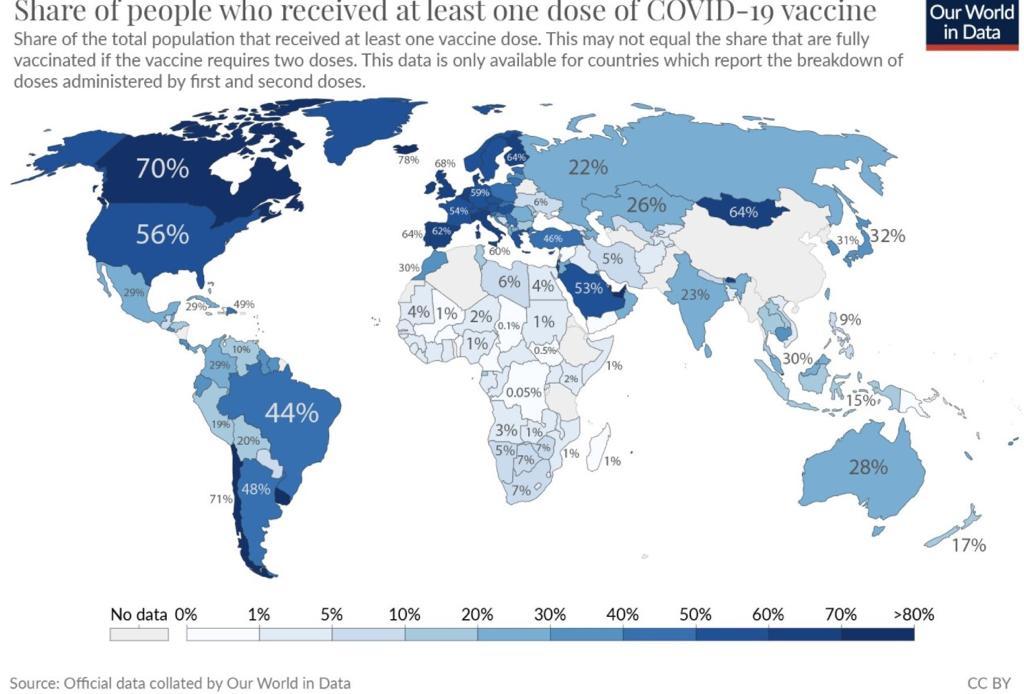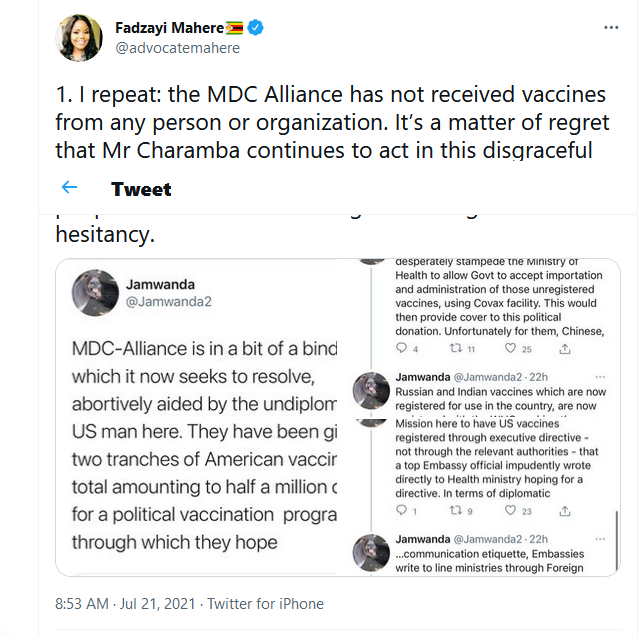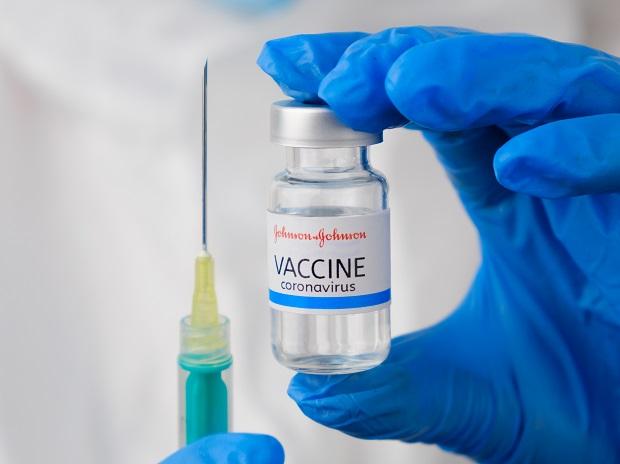The United States (US) says its donation of 25 million Covid-19 vaccines to Africa comes with no strings attached but are part of efforts to stop the spread of the pandemic that is wreaking havoc globally.
These vaccine donations will be delivered to respective countries via the African Union (AU), working with COVAX, a worldwide initiative aimed at providing equitable access to vaccines.
Africa is the second most populous continent in the world with roughly 1.3 billion people but only one percent of its population has been vaccinated.

Speaking in a Digital Press Briefing held Thursday, State Department Coordinator for Global COVID-19 Response and Health Security, Gayle E. Smith, said some of the vaccines were beginning to arrive in Africa.
“We’re in the process of delivering the 25 million doses, working closely with the African Union, governments, and COVAX to get these on the ground as quickly as possible. I’m also pleased to tell you the doses that President (Biden) committed just before the G7, 500 million doses of the Pfizer vaccine, will also start moving in August, and a significant portion of those will also be deployed to Africa,” she said.
“Because we’re well aware that coverage is low, that this third wave is intense, that the Delta variant is quite strong, and we need to do everything we can in partnership with the people and governments of Africa to get these vaccines out there.”
The US is donating three types of Covid-19 vaccines: Pfizer, Moderna, Johnson and Johnson, while first deliveries have been delivered to Djibouti, Ethiopia, Burkina Faso, Gambia and Senegal, with more to follow in coming weeks.
“On the 500 million doses, we are donating those through COVAX. And the way that works is they do allocations every month and at a given time period. And the reason they do that is they need to look around the world, see what the levels of vaccine availability are, what incidence is – they’re also aiming at equity – and then they make the allocation. So I can’t give you an exact number. The first 60 million of those doses will be deployed in August,” Smith said.
In a series of tweets, Zimbabwe’s presidential spokesperson, George Charamba using @Jamwanda2 handle claimed the opposition MDC Alliance received two trances of American vaccines, amounting to half a million doses from the US Embassy in Harare for a political vaccination programme.
Charamba claimed these vaccines given to MDC Alliance were not registered in the country, which so far has approved use of four vaccines – China’s Sinopharm and Sinovac, Russia’s Sputnik V and India’s Covaxin.
He further alleged the US Embassy wrote to the Ministry of Health and Child Care to allow the Zimbabwean government to accept importation and administration of those unregistered vaccines, using the COVAX facility to provide a cover for “this political donation.”
However, the MDC Alliance and US Embassy both denied these claims.

The US Embassy Public Diplomacy Section said, “The United States government vaccine deployment is very transparent and will come to Africa through the COVAX/ AU mechanism. The United States government has not provided any entity in Zimbabwe with vaccines to date.”
At the digital press briefing, the US official said focus on vaccine recipients was ‘very’ much on assisting the Advance Market Commitment (AMC) countries under COVAX and those African countries not members of COVAX.
“The criterion, very briefly, we look at a number of things. We look at coverage of the vaccines. We look at the vulnerabilities, that is what we know about the state of the pandemic in a given country. We look at what may be available elsewhere. Then we allocate accordingly. One of the reasons we spread this first tranche of doses so far and wide across the continent is coverage is universally low, so we want to start building that up as quickly as possible,” Smith said.
Smith noted that by donating, the US was “not asking governments to take a position in our favour on the Security Council, to buy our goods, to do anything else, much as we have done with all of the other investments we’ve made in Africa’s progress on health.”
She said their intent was “very clear,” which was to see Africa defeat Covid-19.
“We want to see Africa be resilient and to thrive. So there are no strings attached is, I think, the first and most important message that we can offer…So I think it’s also fair to say, judge us by our actions and see what we do, and if anybody wants to contrast it to what anybody else does, they’re free to do so.”
Deputy Assistant Secretary of State for African Affairs, Akunna Cook, added that Africa, as in every other region of the world, had to be a part of meeting the challenges of Covid-19.
“At the end of the day you cannot stop this pandemic anywhere in the world without stopping everywhere in the world,” she said.
“This really just builds on a longstanding partnership we’ve had in Africa focused on health, whether it be PEPFAR, whether it be the systems we’ve built to respond to malaria. We’re doing this to ensure that Africa can meet the challenges of this pandemic and then be prepared to meet the challenges of health security, any health security challenges coming in the future. And that’s why we are also partnering to invest in vaccine manufacturing on the continent, for example. So this is just the latest in a long line of policy initiatives in Africa focused on health security.”

